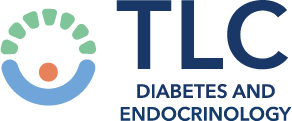Endocrine Conditions
Conditions
Allied Support
Genetic Conditions
Knowledge is Power.
True/False - Quiz: Do You Understand Genetic Cardiac Conditions?
Information - Genetic Conditions
There are a number of genetic cardiac conditions (also called inherited cardiac conditions or inherited heart conditions) that can affect people of all ages, including:
Arrhythmia: Also known as atrial fibrillation, it can increase your risk of heart failure, stroke, blood clots and other heart conditions. A normal heart contracts and relaxes to a regular beat, but if you have atrial fibrillation, the atria (upper chambers) beat out of sync with the ventricles (lower chambers). This can cause blood to pool in your atria, causing blood clots that travel to your brain and cause a stroke.
 High cholesterol: Cholesterol is found in the fats (lipids) in your blood. Your body needs cholesterol to build healthy cells, but if you have high cholesterol it can lead to fatty deposits in your blood vessels. Having high cholesterol can increase your risk of heart disease, as your heart might not get as much oxygen-rich blood as it needs, leading to a heart attack. Decreased blood flow to your brain can cause a stroke.
High cholesterol: Cholesterol is found in the fats (lipids) in your blood. Your body needs cholesterol to build healthy cells, but if you have high cholesterol it can lead to fatty deposits in your blood vessels. Having high cholesterol can increase your risk of heart disease, as your heart might not get as much oxygen-rich blood as it needs, leading to a heart attack. Decreased blood flow to your brain can cause a stroke.
Congenital heart disease: Congestive heart failure is a chronic heart condition that occurs when your heart muscle is ineffective at pumping blood. Certain heart conditions such as high blood pressure or coronary artery disease can lead to congestive heart failure. While the term "heart failure" is often used used, congestive heart failure is the stage in which fluid builds up around the heart, causing it to pump inefficiently.
Cardiomyopathy: Cardiomyopathy refers to diseases of the heart muscle. In most cases, cardiomyopathy causes the heart muscle to become thick, enlarged or rigid. As the disease progresses, the heart becomes weaker, unable to effectively pump blood through the body or maintain a normal electrical rhythm.
Diagnosing Inherited Heart Conditions
 Your body has trillions of cells, containing information that makes us unique. Your genes control your cardiovascular system, so a mutation in even one gene can increase your odds of developing heart disease. Parents pass on genetic variations to their children in DNA.
Your body has trillions of cells, containing information that makes us unique. Your genes control your cardiovascular system, so a mutation in even one gene can increase your odds of developing heart disease. Parents pass on genetic variations to their children in DNA.
If your inherited heart condition isn’t diagnosed or is left untreated, it can lead to heart failure or heart attack. Some people have no genetic cardiac condition symptoms, while others experience heart palpitations, dizzy spells and/or blackouts.
Diagnosing an inherited heart condition can be difficult, but your physician will look for signs such as:
• A heart attack at a young age
• A history of sudden heart attacks in your family
• A history of sudden or premature deaths in your family
• Other family members with a genetic cardiac condition
Genetic Screening for Genetic Cardiac Conditions
 Your doctor may suggest genetic testing to screen for a genetic cardiac condition. He or she may suggest your family members also undergo genetic screening. You may undergo tests such as an electrocardiogram, echocardiogram or cardiac MRI. Following the screening process, your cardiologist and genetic counsellor will go over the results with you and recommend further treatment for your inherited heart condition if needed.
Your doctor may suggest genetic testing to screen for a genetic cardiac condition. He or she may suggest your family members also undergo genetic screening. You may undergo tests such as an electrocardiogram, echocardiogram or cardiac MRI. Following the screening process, your cardiologist and genetic counsellor will go over the results with you and recommend further treatment for your inherited heart condition if needed.
Talk to your cardiologist if you'd like more information on inherited heart conditions.
Visit HealthChoicesFirst.com for more videos and resources on heart health.
Print this Action Plan and check off items that you want to discuss with your healthcare provider
-
There are a number of genetic cardiac conditions that can affect people of all ages, including arrhythmia, high cholesterol, congenital heart disease and cardiomyopathy.
-
If your inherited heart condition isn’t diagnosed or is left untreated, it can lead to heart failure or heart attack.
-
Some people have no genetic cardiac condition symptoms, while others experience heart palpitations, dizzy spells and/or blackouts.
-
Your doctor may suggest genetic testing to screen for a genetic cardiac condition. He or she may suggest your family members also undergo genetic screening.
-
When diagnosing an inherited heart condition, your physician will look for signs such as a heart attack at a young age, a history of sudden heart attacks or premature deaths in your family and other family members with cardiac conditions.


